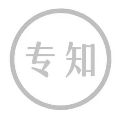This paper proposes a methodological approach with a transfer learning scheme for plastic waste bottle detection and instance segmentation using the \textit{mask region proposal convolutional neural network} (Mask R-CNN). Plastic bottles constitute one of the major pollutants posing a serious threat to the environment both in oceans and on land. The automated identification and segregation of bottles can facilitate plastic waste recycling. We prepare a custom-made dataset of 192 bottle images with pixel-by pixel-polygon annotation for the automatic segmentation task. The proposed transfer learning scheme makes use of a Mask R-CNN model pre-trained on the Microsoft COCO dataset. We present a comprehensive scheme for fine-tuning the base pre-trained Mask-RCNN model on our custom dataset. Our final fine-tuned model has achieved 59.4 \textit{mean average precision} (mAP), which corresponds to the MS COCO metric. The results indicate a promising application of deep learning for detecting waste bottles.
翻译:本文提出一种方法方法,即采用\textit{mask区域建议神经神经网络(Mask R-CNN)来转让塑料废物瓶检测和试样分解的学习计划。塑料瓶是严重危及海洋和陆地环境的主要污染物之一。瓶子的自动识别和隔离可以促进塑料废物的再循环。我们为自动分解任务准备了一套自定制的192个瓶子图像数据集,配有像素比方像素-象素-polygn 批注。拟议的转移学习计划采用了在微软COCO数据集上预先训练过的遮罩R-CNN模型。我们提出了一个全面计划,以微调我们自定义数据集上经过事先训练的MDS-RCNN模型。我们最后的微调模型已经实现了59.4\textit{平均精度}(mAP),该模型与MS COCO指标相匹配。结果显示在发现废瓶方面进行深层学习的可行应用。




